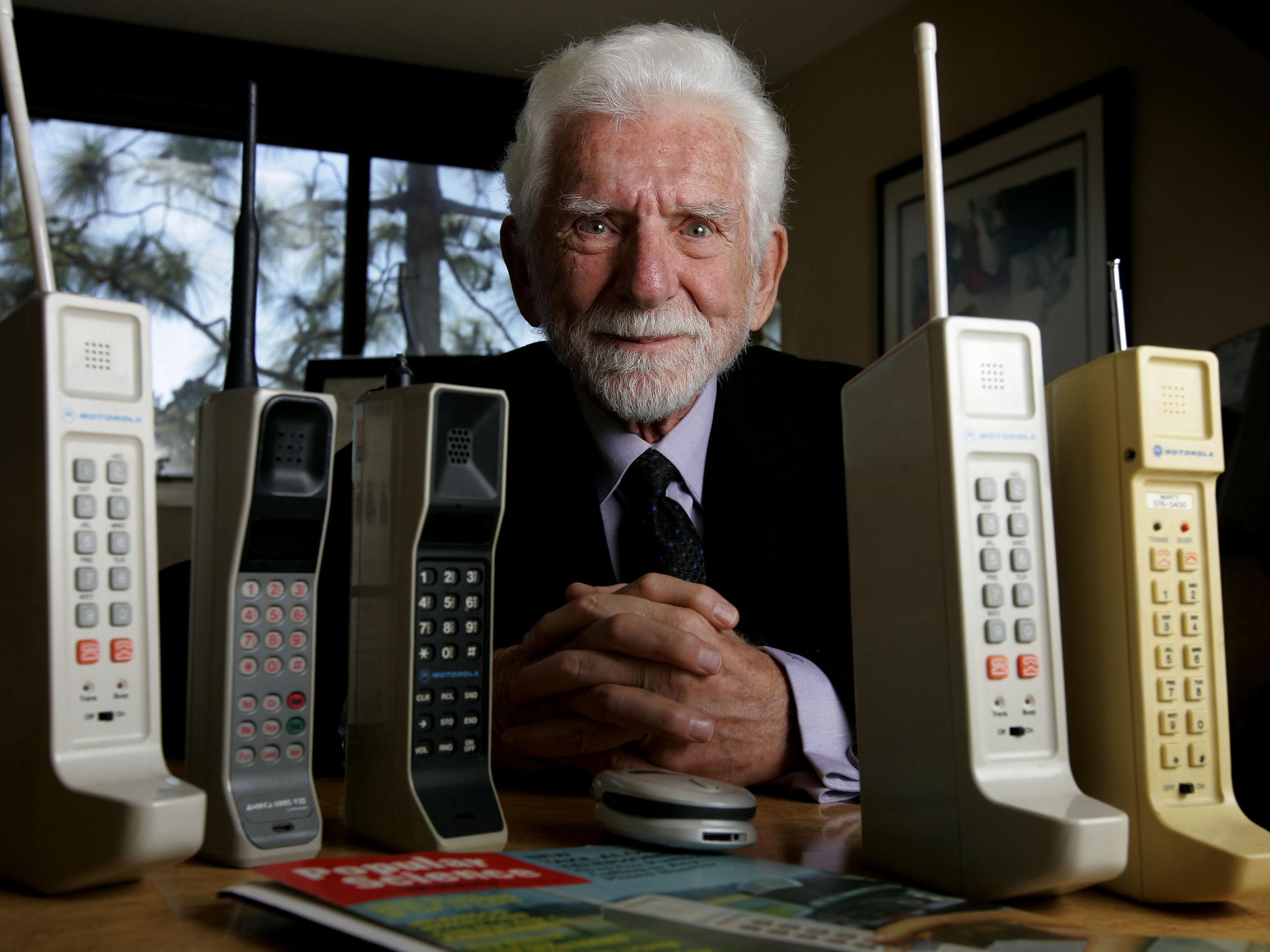Radio wave charging is the next big thing, mobile phone inventor Marty Cooper says
US company Energous just won approval from the US Government for a type of wireless charging

Marty Cooper, who built the first mobile phone in 1973, has revealed he is on the board of a company looking to solve the biggest problem with his great invention - it runs out of battery.
“Keeping your phone charger around is a real annoyance and I think it's going to be an increasing problem," Cooper said.
Cooper is involved in Energous, a company that just won approval from the US Government for a type of wireless charting. Energous uses a miniature transmitter that can power small electronic gadgets like hearing aids and other tiny devices using radio waves.
At the moment, the technology only extends to very small gadgets that have embedded chips that are compatible with Energous technology. Those devices need to be in direct contact with the transmitter to work.
But Cooper thinks this technology could be revolutionary in the near future, when humans will have to juggle digital watches, glasses and other electronic devices that all need power.
“You won't want to take all them off and plug them in. That's why they ought to be charging all the time," he told CNN Money.
Companies have come up with different ways to keep devices charging all the time, from Wi-Charge, a company working on lasers that beam power from the ceiling into mobile phones, to U-Beam, which is working on a way to power phones with sound waves.
Steve Rizzone, CEO of Energous, said the next phase for the technology is to launch transmitters that can charge devices a few inches away by 2017 or 2018.
The technology has some huge hurdles ahead of it. It needs to be embedded in devices to work, which means getting manufacturers on board. Transmitters will need to be deployed widely for the techology to be useful.
Battery technology has long been considered the next big hurdle for tech entrepreneurs like Elon Musk, the founder of Tesla, who is working on a $3,000 battery that will be able to charge homes.
Apple was accused to poaching top engineers for a battery division in 2015, fuelling rumours that it might be seeking to build a car.
Join our commenting forum
Join thought-provoking conversations, follow other Independent readers and see their replies
Comments